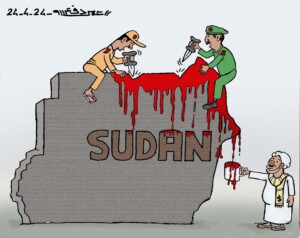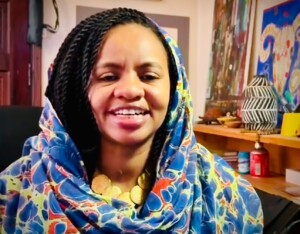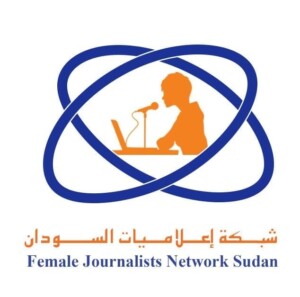‘Khartoum’s financial policies crime against Sudan’: economist
Sudanese economist Mohamed Ibrahim Kebej has accused the ruling National Congress Party (NCP) of “squandering” $70 billion of oil revenues between 2000 and 2011. He warned that Sudan’s debts will “weigh heavily on future generations”, and called Khartoum’s financial policies a crime against Sudan. In a paper presented at a seminar on economic developments in Sudan, convened in Khartoum on Sunday, senior economist Mohamed Ibrahim Kebej stated that the NCP government received more than $70 billion of oil revenues between late 1999, when it started exporting crude oil, until the secession of South Sudan in July 2011.“According to the contracts signed with foreign investigators, the ruling party received $40 billion of crude oil revenues, and more than $30 billion of revenues for oil refined in Sudan – which they squandered on pointless wars.” “The government received 20 percent of the production profits in the first stage. Gradually the percentage increased until it reached more than 50 percent, according to the contracts signed with foreign investors. This percentage, however, has shrunk considerably after 2011, when the production became restricted to Sudan only,” he explained. Pilfering The economist affirmed that the Sudanese government pilfered a part of the oil contracts after the signing of the Comprehensive Peace Agreement (CPA) in January 2005 with the southern Sudanese rebel movement. The CPA stipulated the distribution of the oil revenues over the government and a number of oil producing states.“Southern Sudanese officials repeated called for the details of the contracts signed by Khartoum, to no avail,” said Kebej. He added that Khartoum granted oil production concessions to various companies, “without losing a single dollar”. Debts for dams Kebej also pointed to the loans taken by the Sudanese government to maintain and construct dams in the last couple of years.“The construction of the Merowe Dam in northern Sudan, completed in 2009, cost $1.6 billion. The project was financed by external funding, but mostly by loans from a number of banks and institutions. The maintenance and heightening of the Roseiris dam in southeast Sudan is financed by a loan of $500 million. The government again borrowed large amounts to implement the Upper Atbara and Setit dam projects in northern Sudan.” He warned that the debts will “weigh heavily on future generations. In short: Khartoum’s financial policies are entirely irresponsible. They constitute a crime committed against Sudan.” Oil reserves The Minister of State at the Ministry of Oil, Mohamed Zayed, announced recently that the production of oil since 1999 constitutes less than ten percent of the country’s oil reserves. “90 percent has not been detected yet.” File photo: The Merowe Dam (english.people.com.cn) Related: ‘Ruling party manages Sudan through private companies’: economist (26 October 2014)
Sudanese economist Mohamed Ibrahim Kebej has accused the ruling National Congress Party (NCP) of “squandering” $70 billion of oil revenues between 2000 and 2011. He warned that Sudan’s debts will “weigh heavily on future generations”, and called Khartoum’s financial policies a crime against Sudan.
In a paper presented at a seminar on economic developments in Sudan, convened in Khartoum on Sunday, senior economist Mohamed Ibrahim Kebej stated that the NCP government received more than $70 billion of oil revenues between late 1999, when it started exporting crude oil, until the secession of South Sudan in July 2011.
“According to the contracts signed with foreign investigators, the ruling party received $40 billion of crude oil revenues, and more than $30 billion of revenues for oil refined in Sudan – which they squandered on pointless wars.”
“The government received 20 percent of the production profits in the first stage. Gradually the percentage increased until it reached more than 50 percent, according to the contracts signed with foreign investors. This percentage, however, has shrunk considerably after 2011, when the production became restricted to Sudan only,” he explained.
Pilfering
The economist affirmed that the Sudanese government pilfered a part of the oil contracts after the signing of the Comprehensive Peace Agreement (CPA) in January 2005 with the southern Sudanese rebel movement. The CPA stipulated the distribution of the oil revenues over the government and a number of oil producing states.
“Southern Sudanese officials repeated called for the details of the contracts signed by Khartoum, to no avail,” said Kebej. He added that Khartoum granted oil production concessions to various companies, “without losing a single dollar”.
Debts for dams
Kebej also pointed to the loans taken by the Sudanese government to maintain and construct dams in the last couple of years.
“The construction of the Merowe Dam in northern Sudan, completed in 2009, cost $1.6 billion. The project was financed by external funding, but mostly by loans from a number of banks and institutions. The maintenance and heightening of the Roseiris dam in southeast Sudan is financed by a loan of $500 million. The government again borrowed large amounts to implement the Upper Atbara and Setit dam projects in northern Sudan.”
He warned that the debts will “weigh heavily on future generations. In short: Khartoum’s financial policies are entirely irresponsible. They constitute a crime committed against Sudan.”
Oil reserves
The Minister of State at the Ministry of Oil, Mohamed Zayed, announced recently that the production of oil since 1999 constitutes less than ten percent of the country's oil reserves. “90 percent has not been detected yet.”
File photo: The Merowe Dam (english.people.com.cn)
Related: ‘Ruling party manages Sudan through private companies’: economist (26 October 2014)











 and then
and then